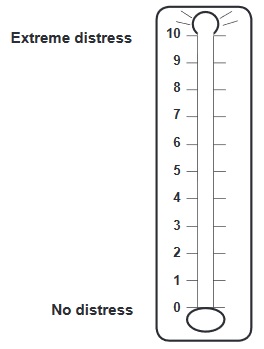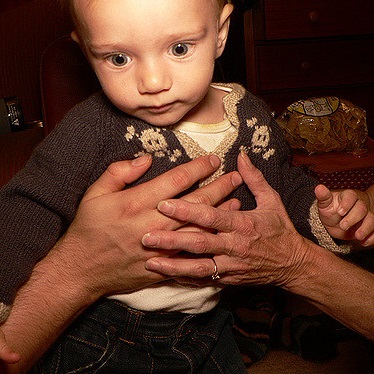Difficult Emotions
Cancer brings with it many difficult emotions. Anxiety, fear, anger, depression and resignation are common. But so, surprisingly, is a sense you may experience of having been born into a new life. My friend Francis Weller, who co-leads the Cancer Help Program with me, calls a cancer diagnosis a "rough initiation." He says you may find you are reborn—and that there is no going back. I had that experience after a heart attack when I was 59. I felt as if I had entered an entirely new world. Everything looked different to me.
So the "difficult emotions" may not only be the so-called "negative" ones. It can also be profoundly difficult to know what to do with an experience of feeling reborn. Transcendent experiences may go hand in hand with deep suffering. You may feel new engagement with the meaning of life, with spirit, with what really matters in your life. Along with the suffering can come experiences of deeper awareness, expanded consciousness, the healing power of love, the reality of spirit, and much more.
Michael Lerner
Living with anxiety, fear, uncertainty, anger and confusion is a common experience after a cancer diagnosis. There is no single answer, but there is a great deal that you can do.
Take a deep breath and explore some of the following options.
 |
Fear and AnxietyIt's normal to feel a fight-or-flight response when your life is threatened. Find suggestions for how to address these difficult emotions. |
 |
StressStress is a natural response to fear and uncertainty, but it can rob you of your ability to think clearly, make good decisions, and interact well with others. Stress reduces your body's ability to fight invaders and heal. |
 |
Decision making under pressureYou may feel pressured to make immediate decisions without enough information. Pilots use the TDODAR model to respond quickly—and wisely—in life-threatening situations. Cancer patients can, too. |
 |
DistressDistress can come from having cancer, its symptoms, or its treatment. Explore tools for screening your level of distress and guidance for bringing it to your care team's attention. |
 |
DepressionDepression is common among cancer patients. Identifying and managing it are important aspects of cancer treatment. |
 |
Pain and sufferingPain makes everything more difficult, but cancer pain can be managed. |
 |
Finding someone to helpProfessional advocates and navigators are available to help you find your way through a maze of options. |
 |
Tapping into love and supportEverything becomes easier when you have people who can listen or help. |
 |
Building resilienceCancer treatments can be hard on your body, but you can build up and maintain its performance by giving it the tools, fuel, and support it needs to function optimally. |
 |
Living with UncertaintyThis blog post features responses from several cancer survivors regarding uncertainty. |
Image credits (from Creative Commons unless noted):
- Hamed Masoumi
- Dory1506
- daniel ab
- National Comprehensive Cancer Network Distress Thermometer
- Nadine
- floydian13
- Bob Leckridge
- Catt
- marco monetti
More Information
- Triage Cancer
- Nancy Novack and Barbara K. Richardson (editors): I Am with You: Love Letters to Cancer Patients
- Jackie Ogg, Herman Barangan and Andrea Betts: My Friend Has Cancer?!
- Dr. Ralph Moss: Dealing with the Trauma of Cancer: Dr. Moss interviews Dr. James S. Gordon
- Martin L. Rossman, MD: Fighting Cancer from Within
